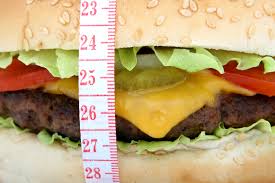Overnutrition
(Redirected from Hyperalimentation)
Overnutrition, also referred to as hyperalimentation, is a subtype of malnutrition where there is an excessive intake of nutrients. Unlike undernutrition, which is characterized by inadequate nutrient intake, overnutrition occurs when there's a surplus of nutrients relative to the amount that the body requires for normal growth, development, and metabolism.
While the term "malnutrition" often conjures images of undernourished individuals, it's essential to understand that malnutrition encompasses both undernutrition and overnutrition. Overnutrition can lead to numerous health problems, including obesity, type 2 diabetes, and cardiovascular diseases.
Causes[edit | edit source]
Overnutrition can result from:
- Excessive Caloric Intake: Consuming more calories than the body can expend.
- Unbalanced diet: High intake of specific nutrients, such as fats or sugars, without a balanced intake of other essential nutrients.
- Reduced Physical Activity: Sedentary lifestyles can contribute to caloric surplus.
- Genetics: Some individuals might be predisposed to store excess energy more efficiently.
Consequences[edit | edit source]
The detrimental health effects of overnutrition include:
- Obesity: Excess body weight increases the risk of several chronic diseases.
- Metabolic syndrome: A cluster of conditions including increased blood pressure, high blood sugar levels, excess body fat, and abnormal cholesterol levels.
- Chronic Non-Communicable Diseases: Such as cardiovascular diseases, type 2 diabetes, and certain cancers.
- Digestive disorders: Overeating can strain the digestive system, leading to problems like acid reflux and gallstones.
Management and Prevention[edit | edit source]
Preventing and managing overnutrition involves:
- Balanced diet: Incorporate a varied diet rich in fruits, vegetables, lean proteins, and whole grains.
- Physical activity: Regular exercise helps to balance caloric intake with expenditure.
- Education: Raising awareness about the importance of balanced nutrition.
- Health Monitoring: Regular check-ups can help in early detection and intervention.
Societal Implications[edit | edit source]
Overnutrition has broader implications beyond individual health:
- Economic Impact: Increased healthcare costs related to treating chronic diseases.
- Productivity Loss: Health issues can lead to decreased workplace productivity and absenteeism.
- Strain on Healthcare Systems: Rising prevalence can overwhelm healthcare infrastructure.
See Also[edit | edit source]
See also[edit | edit source]
| Malnutrition | ||||||||||||||
|---|---|---|---|---|---|---|---|---|---|---|---|---|---|---|
|
Search WikiMD
Ad.Tired of being Overweight? Try W8MD's NYC physician weight loss.
Semaglutide (Ozempic / Wegovy and Tirzepatide (Mounjaro / Zepbound) available. Call 718 946 5500.
Advertise on WikiMD
|
WikiMD's Wellness Encyclopedia |
| Let Food Be Thy Medicine Medicine Thy Food - Hippocrates |
Translate this page: - East Asian
中文,
日本,
한국어,
South Asian
हिन्दी,
தமிழ்,
తెలుగు,
Urdu,
ಕನ್ನಡ,
Southeast Asian
Indonesian,
Vietnamese,
Thai,
မြန်မာဘာသာ,
বাংলা
European
español,
Deutsch,
français,
Greek,
português do Brasil,
polski,
română,
русский,
Nederlands,
norsk,
svenska,
suomi,
Italian
Middle Eastern & African
عربى,
Turkish,
Persian,
Hebrew,
Afrikaans,
isiZulu,
Kiswahili,
Other
Bulgarian,
Hungarian,
Czech,
Swedish,
മലയാളം,
मराठी,
ਪੰਜਾਬੀ,
ગુજરાતી,
Portuguese,
Ukrainian
Medical Disclaimer: WikiMD is not a substitute for professional medical advice. The information on WikiMD is provided as an information resource only, may be incorrect, outdated or misleading, and is not to be used or relied on for any diagnostic or treatment purposes. Please consult your health care provider before making any healthcare decisions or for guidance about a specific medical condition. WikiMD expressly disclaims responsibility, and shall have no liability, for any damages, loss, injury, or liability whatsoever suffered as a result of your reliance on the information contained in this site. By visiting this site you agree to the foregoing terms and conditions, which may from time to time be changed or supplemented by WikiMD. If you do not agree to the foregoing terms and conditions, you should not enter or use this site. See full disclaimer.
Credits:Most images are courtesy of Wikimedia commons, and templates, categories Wikipedia, licensed under CC BY SA or similar.
Contributors: Prab R. Tumpati, MD



